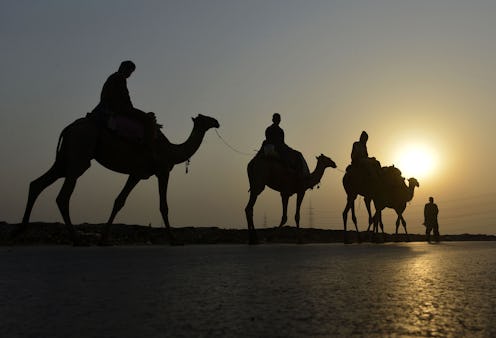News
This Proposed Law In Pakistan Is Problematic
An organization of religious authority has proposed a new bill in Pakistan to allow light beating of women under certain circumstances. Known as the Council of Islamic Ideology (CII), the organization does not have the authority to approve or enact laws, but it advises the Pakistani legislature on Islamic ideology and laws. If the Pakistani legislature approves its latest recommendation, the country's women could be subjected to the same kind of violence that has plagued their population for ages.
On Thursday, The Express Tribune, a Pakistani news outlet, reported that the CII would forward a bill to the Pakistani parliament that allows a husband to lightly beat his wife if she defies him in certain ways. For instance, a woman could be beaten for not dressing the way that her husband demands, for giving money to someone without her husband's permission, or for refusing intercourse without a religious reason.
Unfortunately, for many Pakistani women, these proposed rules may only institutionalize what has previously been accepted. As The Atlantic reported back in 2012, Pakistan has been regarded as one of the most dangerous countries in the world for women, with more 90 percent of women suffering from domestic violence. The proposed bill would prohibit forceful beatings, but in doing so, it encourages men to beat women only with a light stick.
Another problematic part of the proposal could make it harder, if passed, for women to fight for equality. The bill would ban co-education after the primary level. In Pakistan, women, particularly those from poor families, already have an incredibly hard time getting an education. Women have a much lower literacy rate — around 45 percent — than men, according to CIA data.
Women's education, particularly in Pakistan, has become the fitting mission of Malala Yousafzai, the now-18-year-old Pakistani girl who survived an assassination attempt by the Taliban back in 2012. In 2014, Yousafzai won a Nobel Peace Prize for her activism with regard to female education around the world, becoming the youngest-ever honoree.
The new proposal in Yousafzai's native country would limit the education that women receive, the careers that they pursue, and the way of life that they are able to experience. The CII's proposal remains a recommendation to the Pakistani legislature, and the legislature does not have to consider it. Given the country's history of patriarchy and violence toward women, though, Pakistani women may not even need a new law to solidify their secondary place in society.
